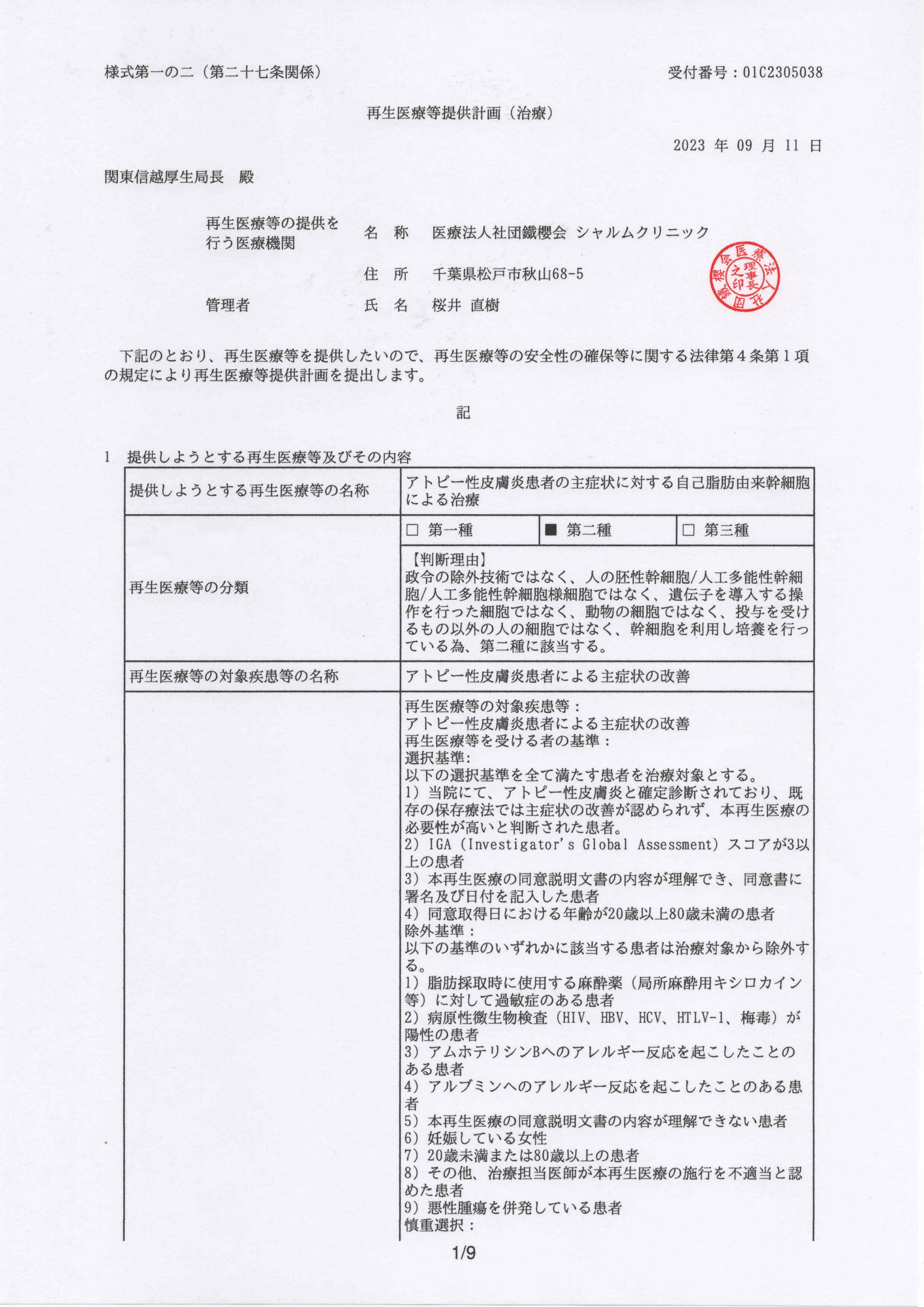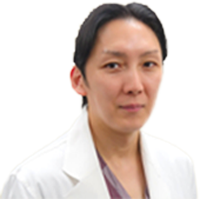Autologous fat-derived mesenchymal stem cell therapy.
For inquiries and reservations, please click here.
【B&W Consulting Company】https://bwc.jpn.com/
【MAIL】info@bwc.jpn.com
【TEL】+81-78-945-8103
Our hospital provides autologous fat-derived mesenchymal stem cell drip therapy.
What is regenerative medicine?
Regenerative medicine is a medical treatment that uses stem cells to restore function to tissues and organs that are defective or malfunctioning.
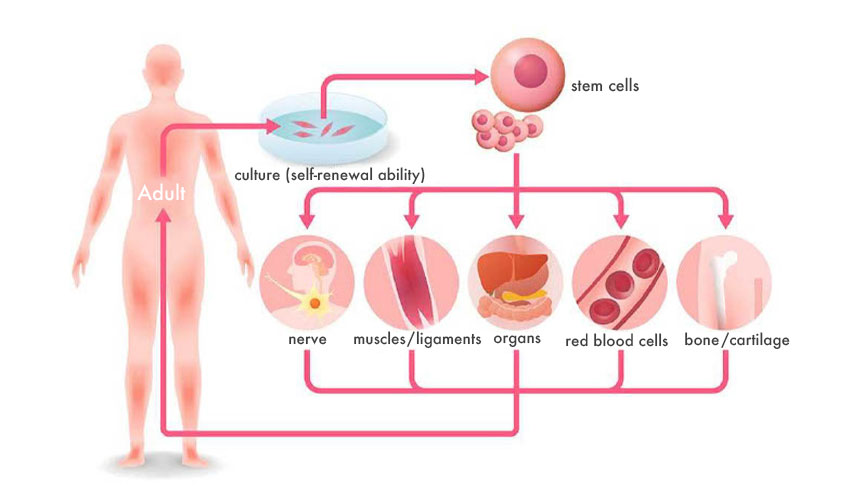
Stem cells can be classified into pluripotent stem cells and somatic stem cells, with iPS cells representing the former and mesenchymal stem cells (MSC) representing the latter.
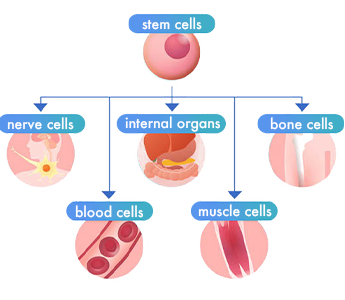
Stem cells are the base cells for all cells.
Stem cells differentiate into various types of cells and replace aging or damaged cells.
This keeps the organs in good condition at all times.
When you think of regenerative medicine, you probably think of a method of transplanting organs created from iPS cells.
However, it seems that it will still take some time for this to become a reality. One type of regenerative medicine that has already been put into practical use is cell therapy, in which stem cells are directly administered into the body.
In fact, clinical treatments that use mesenchymal stem cells to promote organ regeneration have already begun.
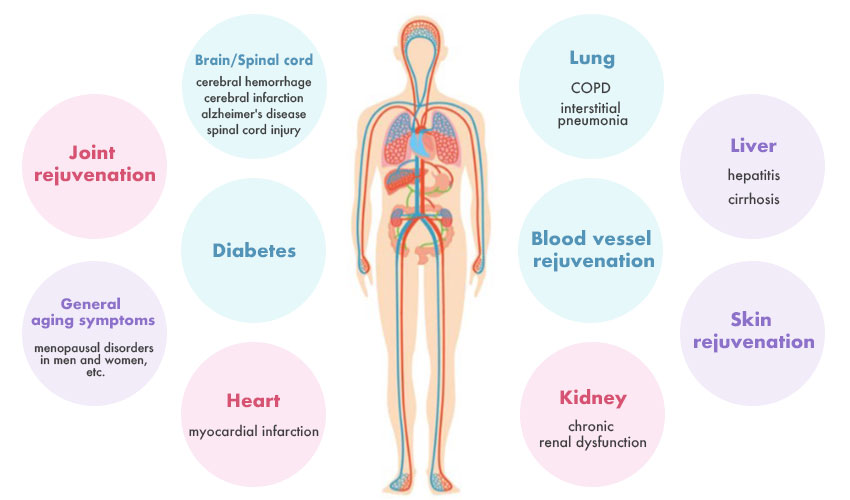
Diseases for which clinical research using stem cell therapy is progressing.
What are mesenchymal stem cells (MSCs)?
Cells belonging to the mesenchymal system include osteocytes, cardiac myocytes, chondrocytes, tendon cells, and adipocytes.
These mesenchymal tissues are classified as mesodermal tissues, and MSCs are somatic stem cells that have the ability to differentiate into these mesenchymal cells. Furthermore, there are reports that cells differentiate into endoderm, ectoderm-derived nerve cells, and liver parenchymal cells other than mesoderm.
MSCs exist within adult humans and can be harvested from various tissues such as bone marrow, umbilical cord, and fat.
These MSCs can be collected from adult humans, meaning that the patient's own MSCs can be used for treatment. This is a big advantage as it avoids rejection.
Bone marrow-derived MSCs have already been used as an adjunct during hematopoietic stem cell transplantation, but adipose-derived MSCs are attracting attention as MSCs with superior organ repair and immunomodulatory abilities compared to bone marrow-derived MSCs.
Adipose tissue is a tissue made up of fat cells and has the functions of storing energy in the form of fat, protecting internal organs by alleviating shocks from the outside world, and maintaining body temperature.
It exists under the skin and there are two types: white adipose tissue and brown adipose tissue. Most adipose tissue is white adipose tissue, which stores neutral fat as energy within its cells, while brown adipose tissue dissipates energy by taking in free fatty acids from the blood and creating heat.
Inside this adipose tissue are adipose stem cells. The lifespan of fat cells is generally said to be about 2 to 3 years. When adipocytes undergo cell death due to lifespan, adipocytes differentiated from adipose stem cells replace this death.
Advantages of adipose-derived MSCs
・While bone marrow-derived MSCs account for only approximately 0.01% of the cells in the bone marrow, the number of adipose-derived MSCs contained in adipose tissue is 500 times greater than that of MSCs contained in bone marrow.
While the amount of bone marrow-derived MSC that can be harvested is limited, adipose-derived MSC can be harvested in large quantities from adipose tissue throughout the body.
・Adipose-derived MSCs produce more growth factors (regeneration promoting factors) such as HGF (hepatocyte growth factor) and VEGF (vascular endothelial growth factor), which contribute to organ repair, compared to bone marrow-derived MSCs.
・Adipose-derived MSCs also have higher anti-inflammatory properties compared to bone marrow-derived MSCs.
・The number of MSCs decreases with age. There are also reports that the speed of proliferation of bone marrow-derived MSCs slows down with age. In contrast, adipose-derived MSCs can proliferate without problems even when obtained from the adipose tissue of elderly people.
・Collecting bone marrow-derived MSCs requires general anesthesia, which places a heavy physical burden on the patient. In contrast, adipose-derived MSCs are extremely easy to collect and place little burden on the body. can be mentioned.
What is stem cell drip therapy?
Stem cells have the ability to repair damaged or weakened cells. By increasing the self-repairing power of these stem cells, working on worn-out cartilage and organs that are no longer functioning as they should, and repairing the cells, we aim to bring the body's natural functions closer to normal.
In other words, the mechanism of regenerative medicine using stem cells is to use one's own cells to repair functions that cannot be restored or restored on one's own, such as by resting or eating.
Stem cell drip treatment involves injecting cultured stem cells from cells collected from your own body into the bloodstream into the bloodstream into areas where direct injection is not possible. This is a treatment method that can target cells throughout the body.
Stem cells administered into the body have the property of gathering at injured areas in the body, suppressing inflammation and repairing injured tissues. Therefore, it can be expected to be effective against a wide range of diseases.
Among these, the following are the main effects that can be expected from stem cell infusion therapy.
1.Improving immune function
By activating cells in the body, you can expect to improve the immunity of the entire body.
2.Alleviation of skin diseases
By targeting skin cells damaged by inflammation, it is expected to be effective in alleviating skin diseases such as atopic dermatitis.
3.Recovery of built-in functions
The homing effect (property of regenerating and repairing weakened tissues) of the administered stem cells causes inflammation of injured internal organs, cerebral infarction, lung disease, autoimmune diseases such as multiple sclerosis, diabetes, liver cirrhosis, and ischemic disease.
It can be expected to alleviate and prevent symptoms of heart disease, Alzheimer's disease, etc.
4.Chronic pain relief
Chronic pain refers to pain that remains even after the period required for treatment of the disease.
The inflammation-reducing effect of stem cell infusion suppresses chronic inflammation that causes pain, and by repairing peripheral nerve injury sites, it is expected to be effective in alleviating infiltrative and neuropathic pain.
5.Aging Care
By repairing skin cells that have deteriorated due to aging, it can be expected to improve skin wrinkles and age spots, whiten the skin, and improve elasticity.
Treatment flow
Treatments are provided by appointment only.
-
At the first counseling session, a general blood test and blood sampling for infectious diseases (syphilis, hepatitis B, hepatitis C, HIV, HTLV-1) will be conducted (those with the above infectious diseases will not be able to receive further treatment).
We will make a reservation for the fat collection day. - The fat will be collected on the day of your appointment. Fat harvesting is performed under local anesthesia and takes about 10 minutes. On the same day, blood necessary for the culture process (infectious disease testing will also be conducted) will be collected.
-
The collected cells are cultured over a period of approximately 5 weeks to the number required for treatment.
During this time, we will discuss and confirm the date of infusion administration.
*The administration date may change depending on the progress of culture. - Stem cell drip treatment (about 1 hour) will be performed at the confirmed date and time.
- We will monitor your progress after administering the IV drip and provide consultation and suggestions regarding future treatment plans.
If you are considering the next administration, we will collect the blood necessary for culture at this time.
Treatment risks and side effects
Internal bleeding/pain/infection at the fat collection site, internal bleeding/numbness at the blood collection/infusion site, allergies, lack of perceived effectiveness, and in very rare cases pulmonary embolism, etc.
| Regular price | |
|---|---|
| Infusion of mesenchymal stem cells derived from own fat Approximately 200 million pieces |
2,970,000 yen |
*If you cancel your treatment midway through, or if you test positive for an infectious disease, the costs incurred up to that point (blood test fees, costs associated with fat collection/blood sampling, cell culture fees, etc.) will not be refunded.
*Free medical treatment initial consultation fee 3,300 yen, free medical treatment re-examination fee free

Doctor introduction

-
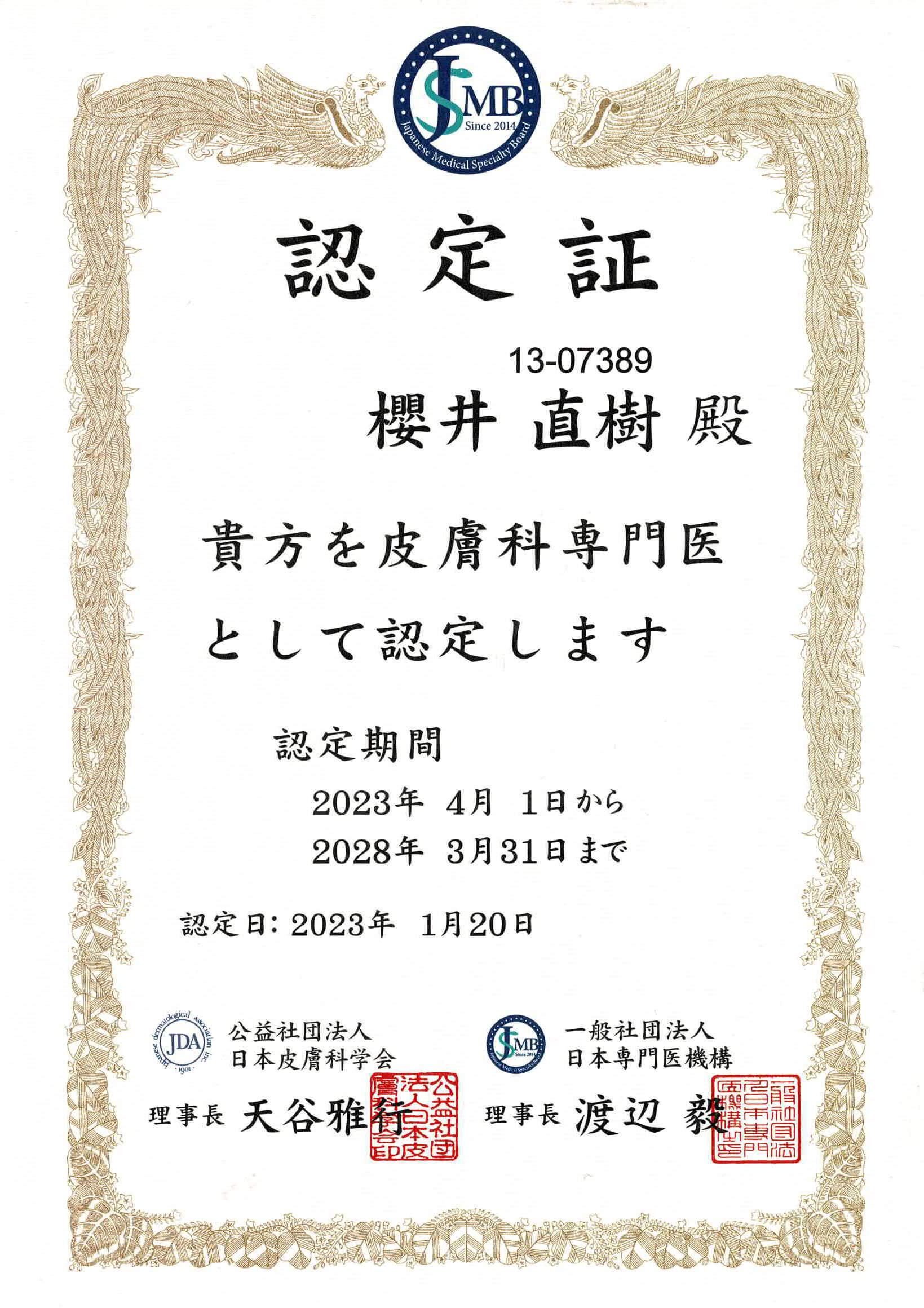
Dermatologist certification -
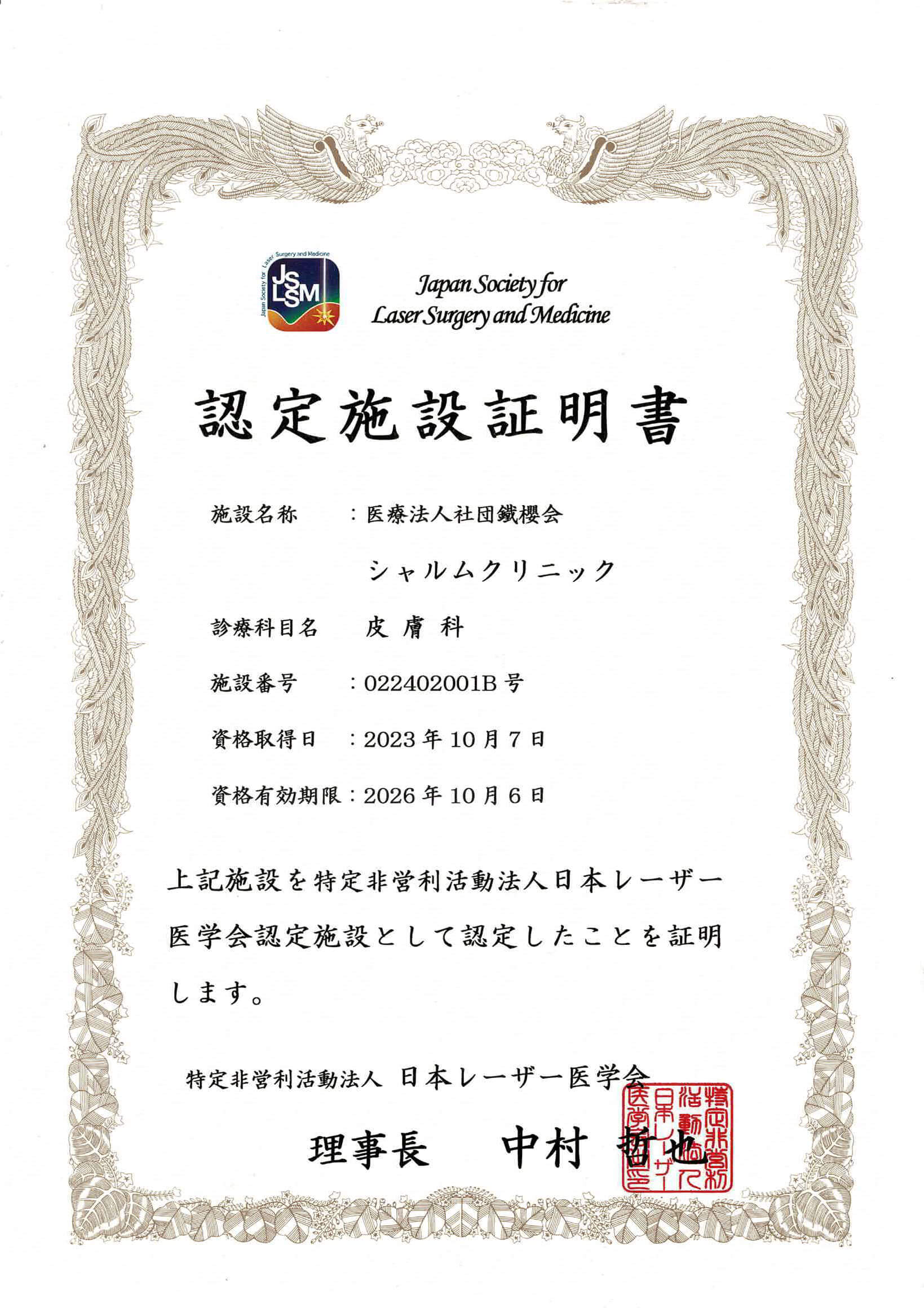
Facility certified by the Japanese Society of Laser Medicine -
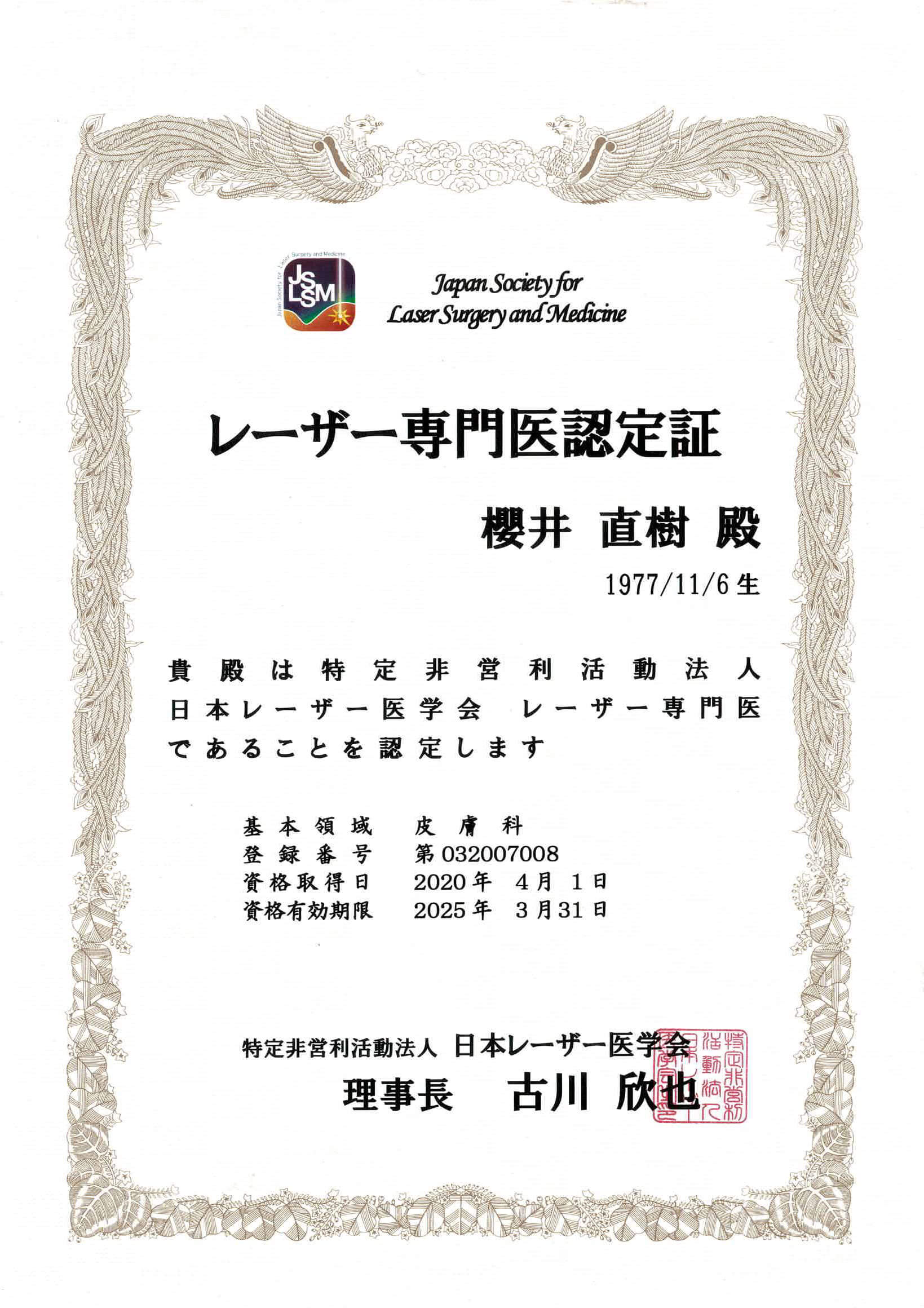
Laser specialist certificate -
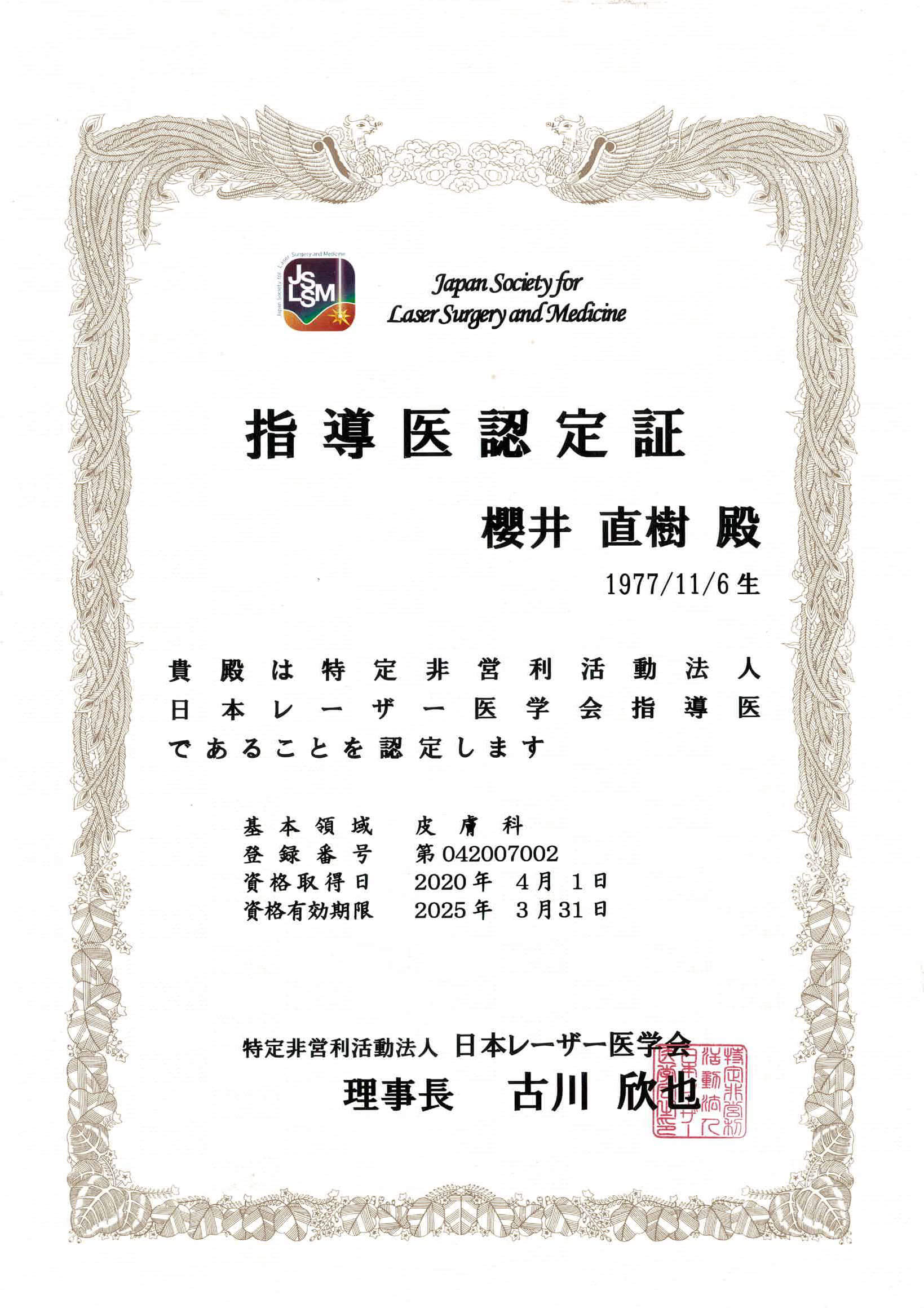
Laser instructor certification -
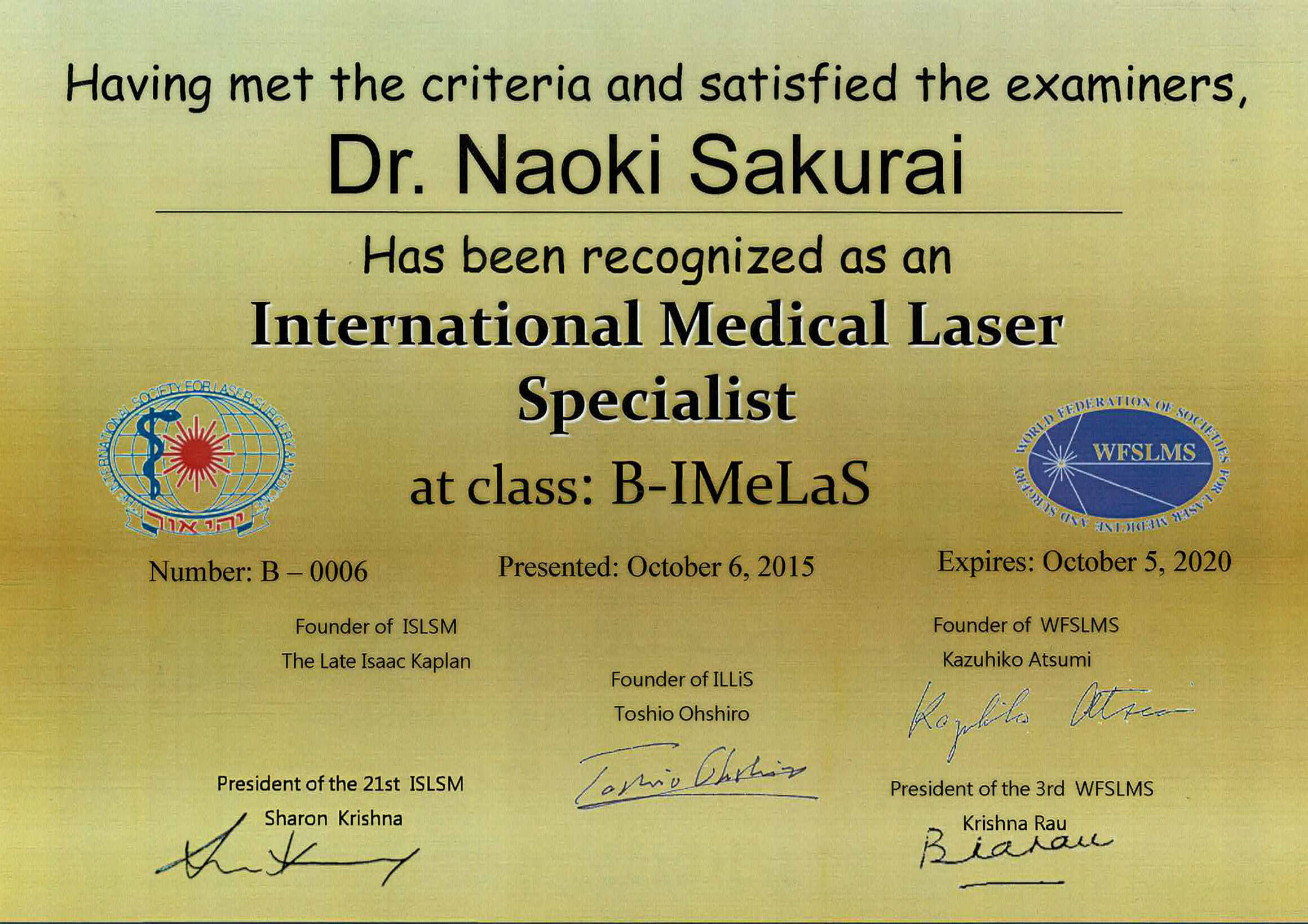
International Laser Specialist (B-IMeLaS) Certificate -
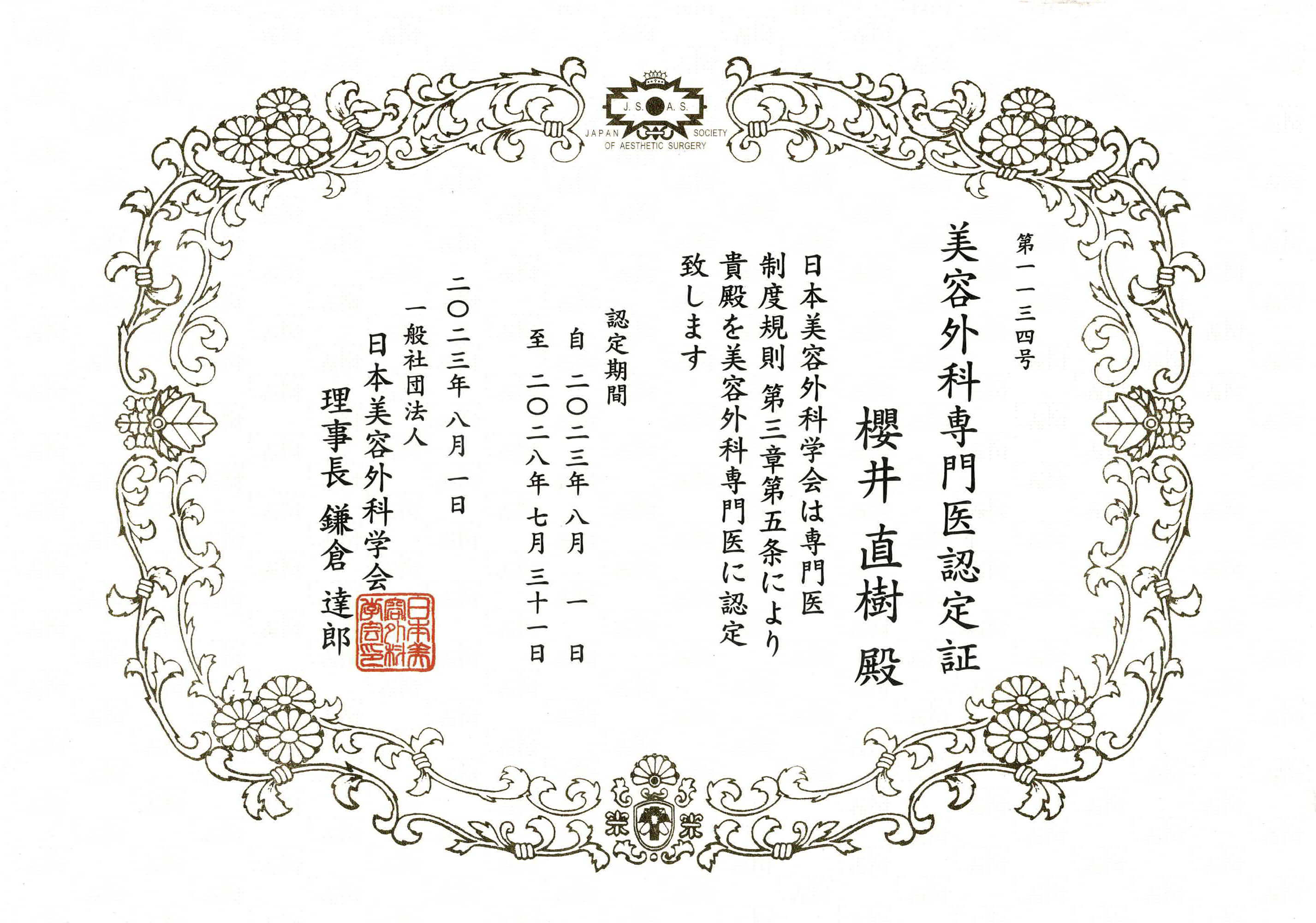
Japanese Society of Cosmetic Surgery (JSAS) Specialist Certification -
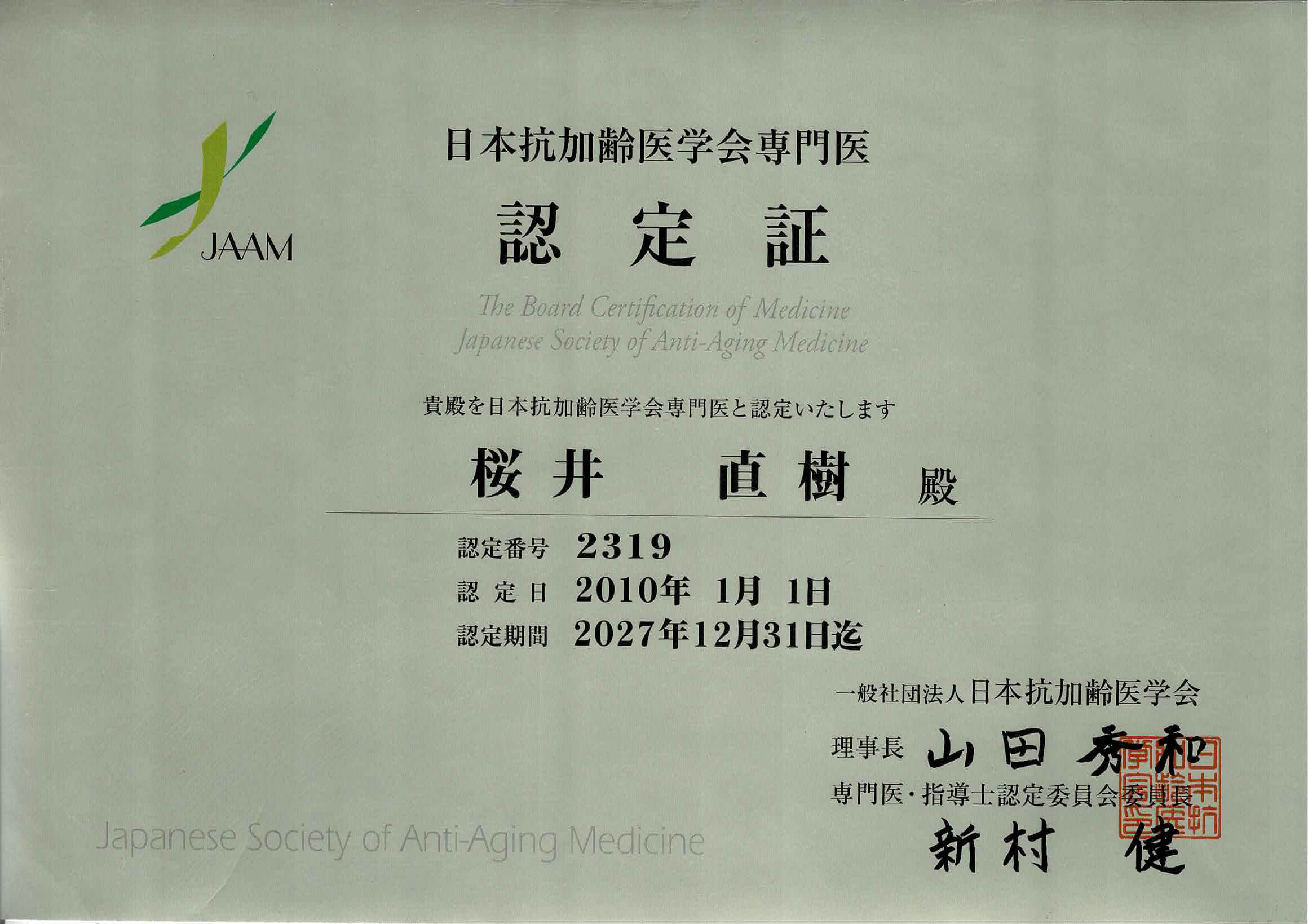
Anti-Aging Medicine Society Specialist Certification -
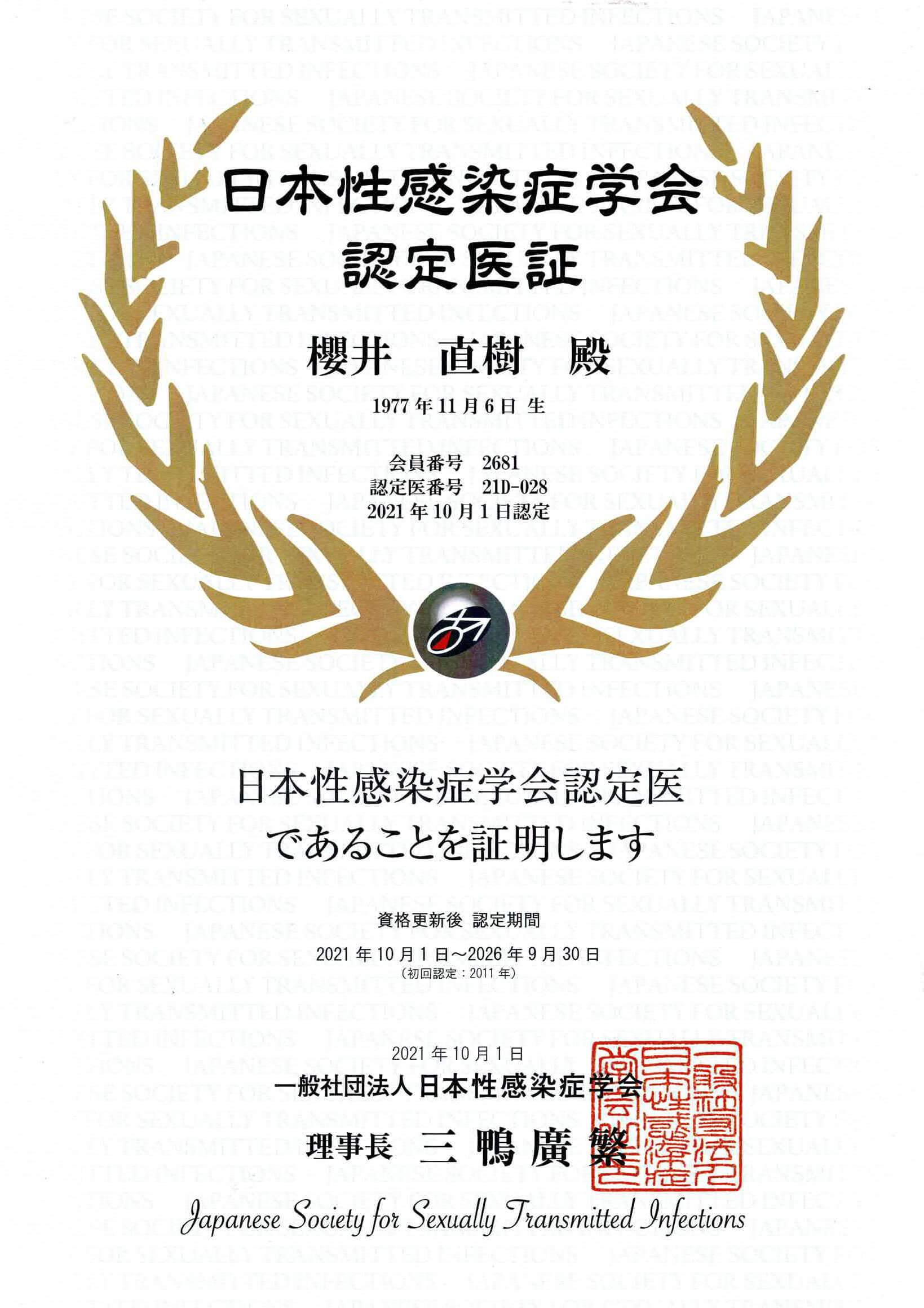
Japanese Society for Sexually Transmitted Diseases Certified Medical Certificate -
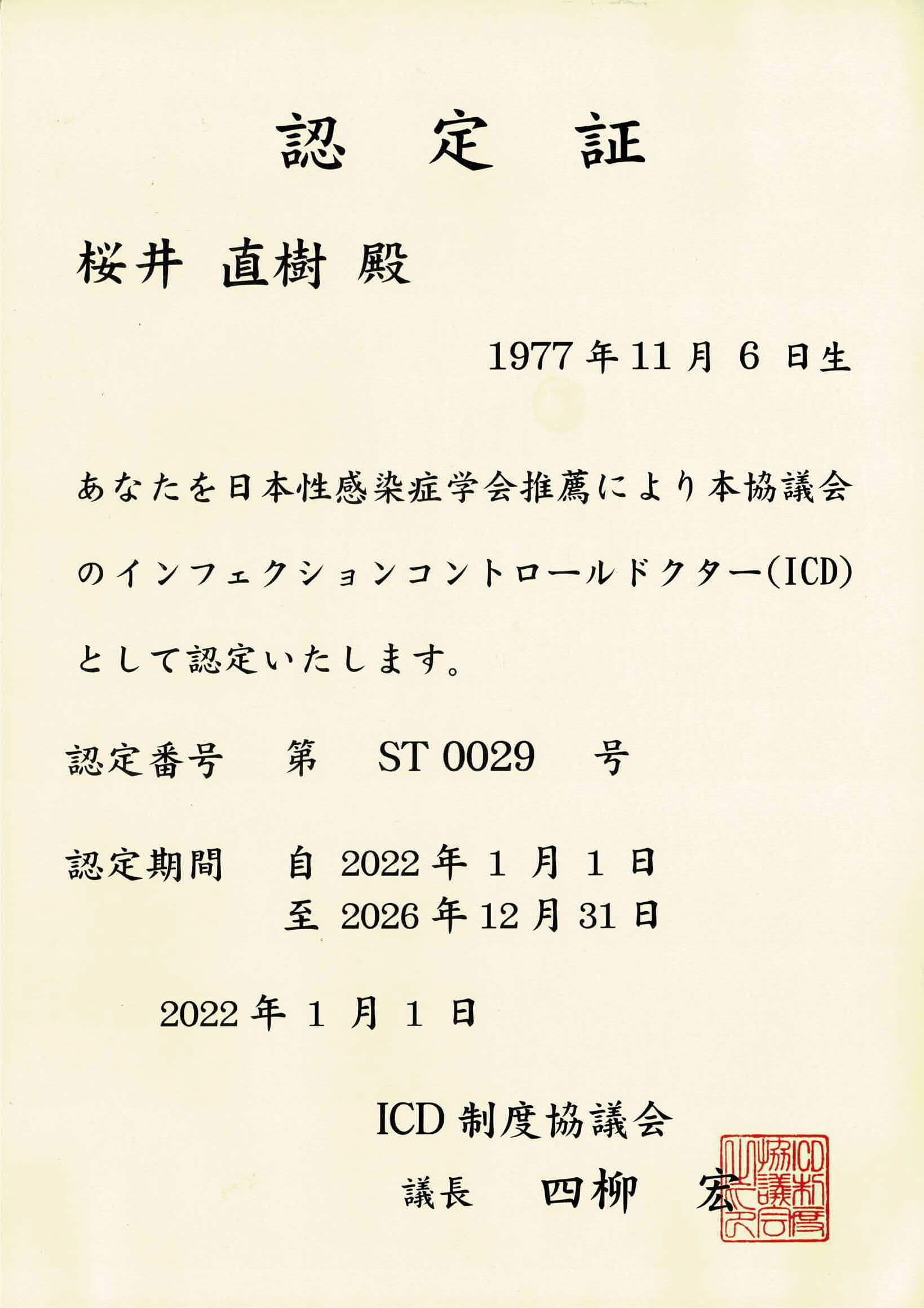
Infection Control Doctor Certification -

International Chinese Medical License -
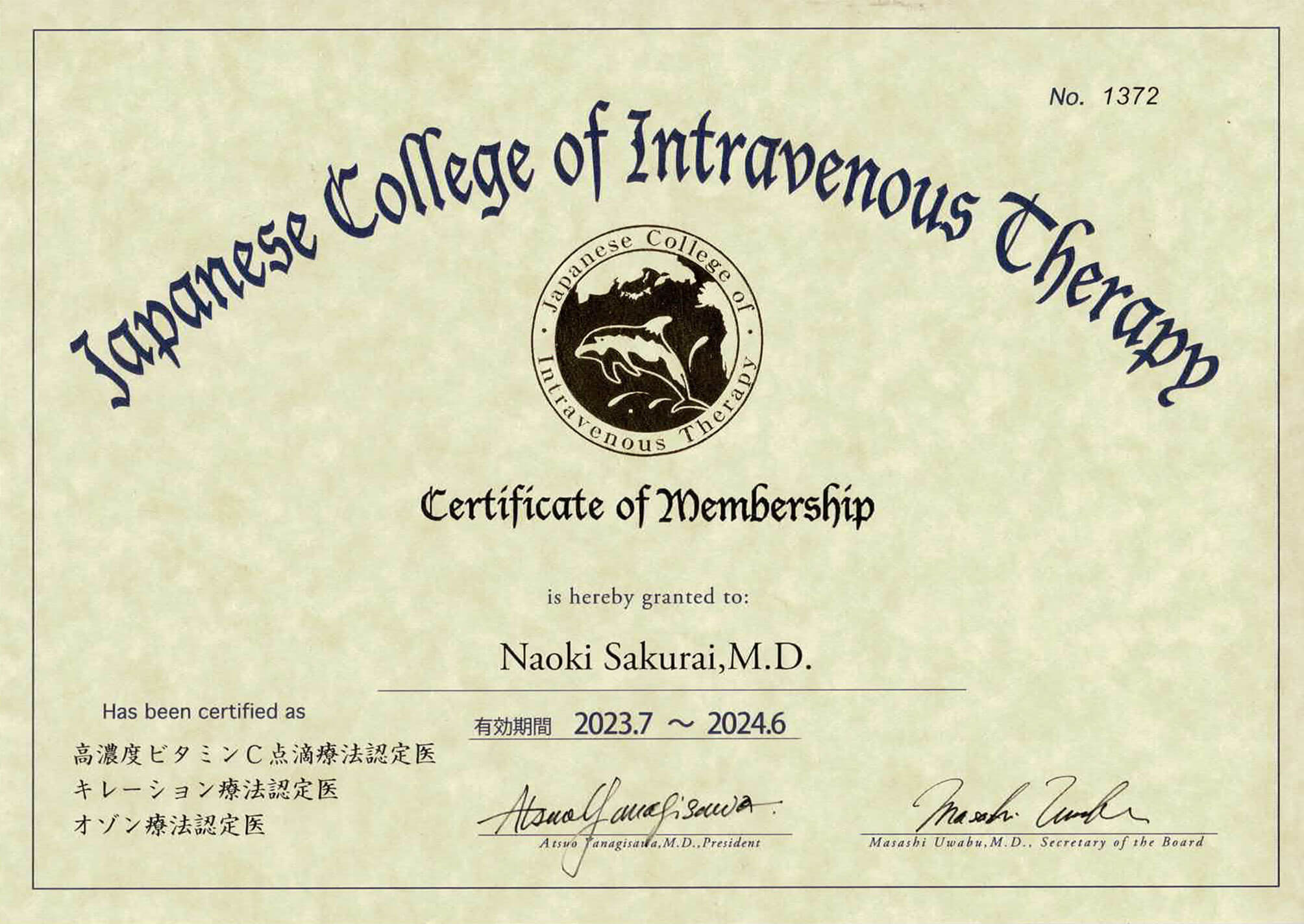
Drop therapy research group certified medical certificate -
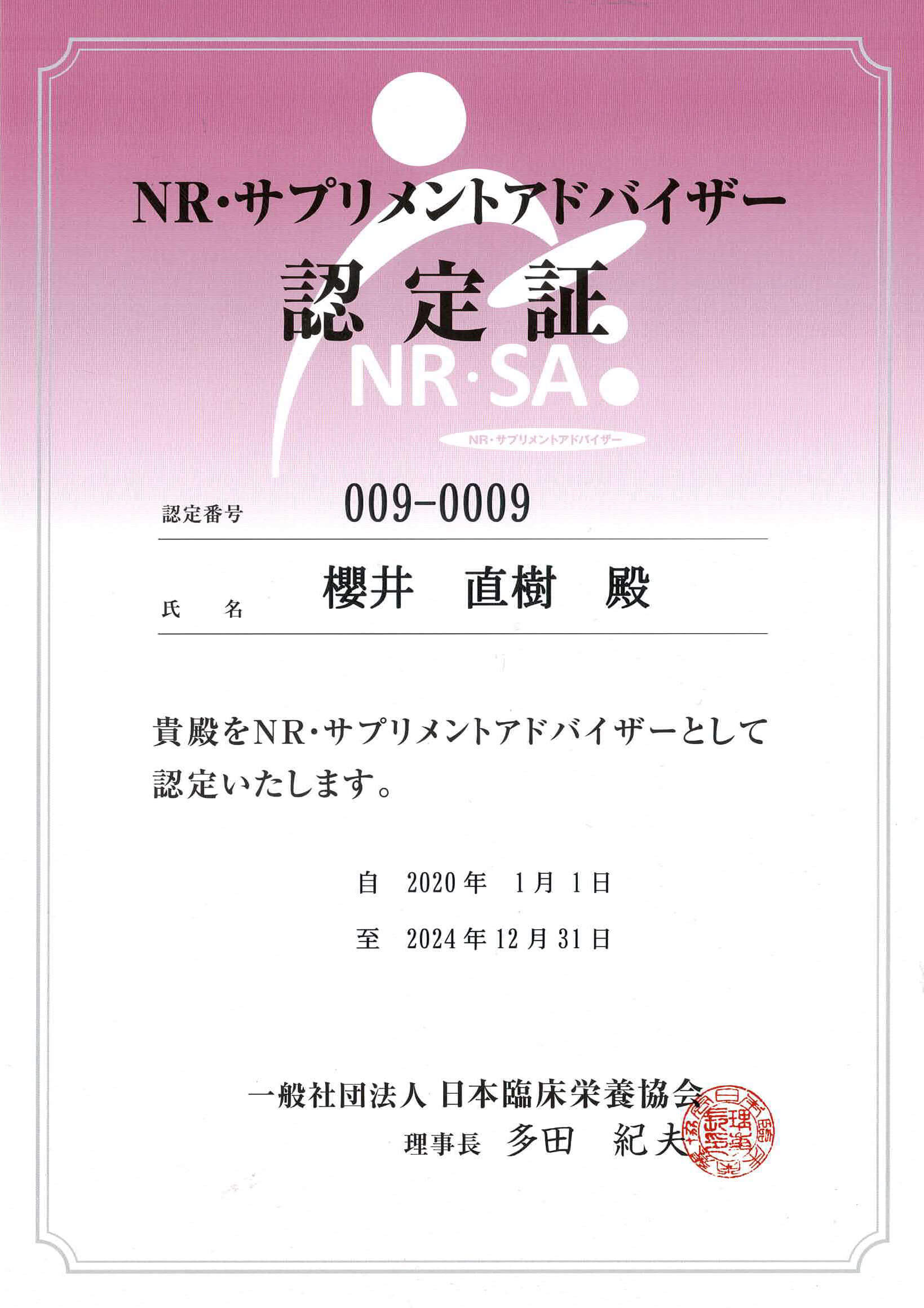
NR/Supplement Advisor Certification -
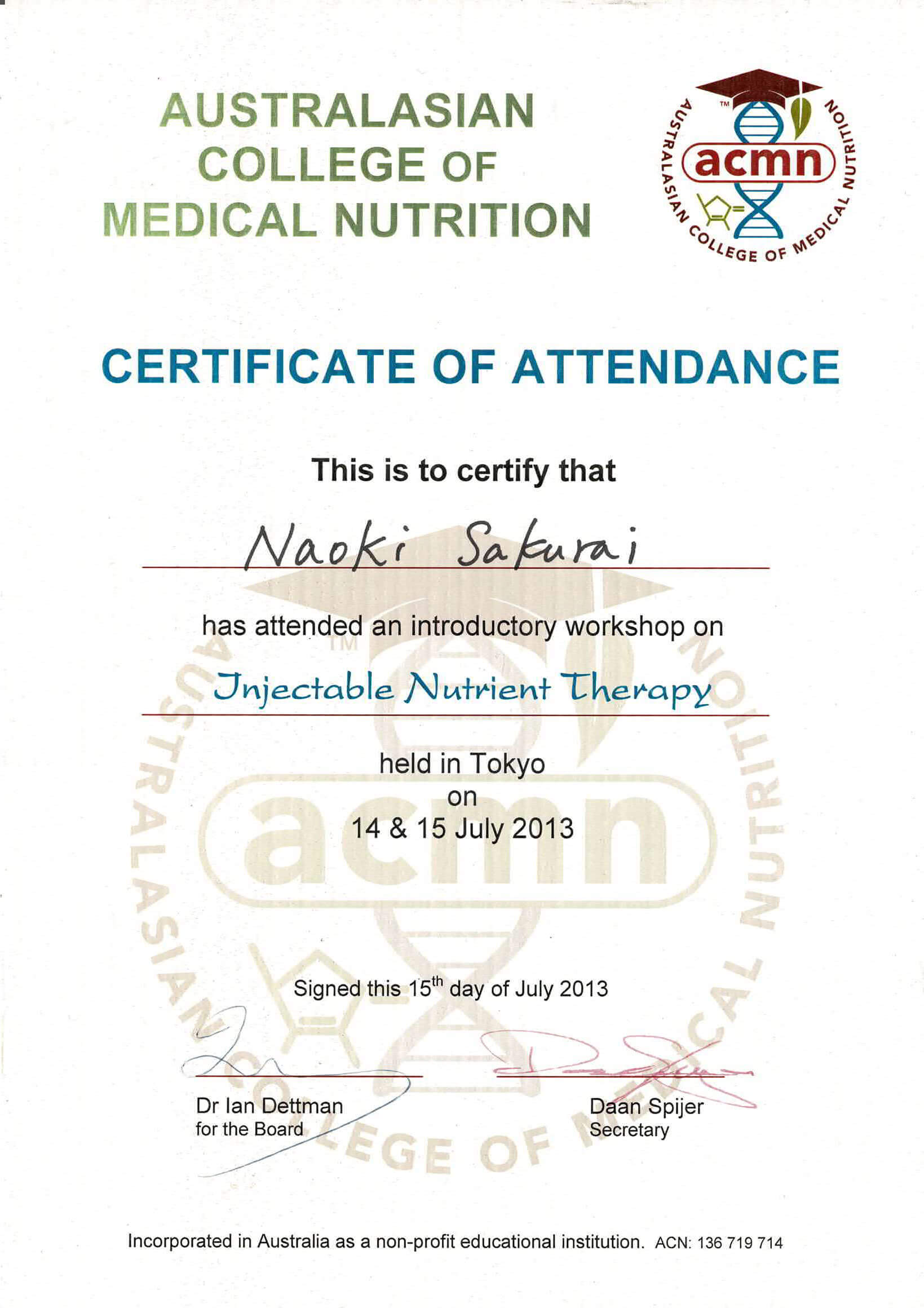
ACMN CERTIFICATE OF ATTENDANCE -
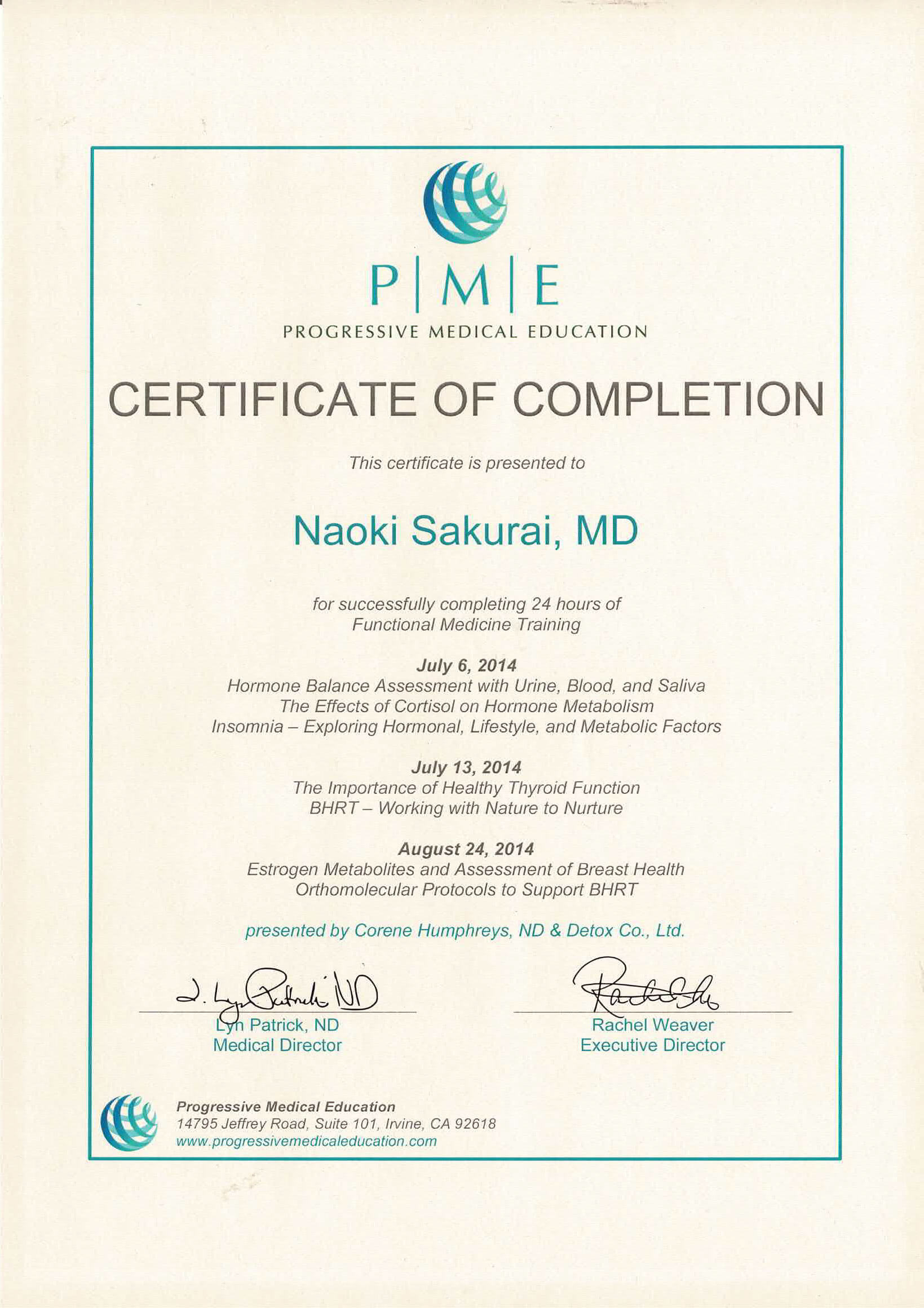
PME CERTIFICATE OF COMPLETION -
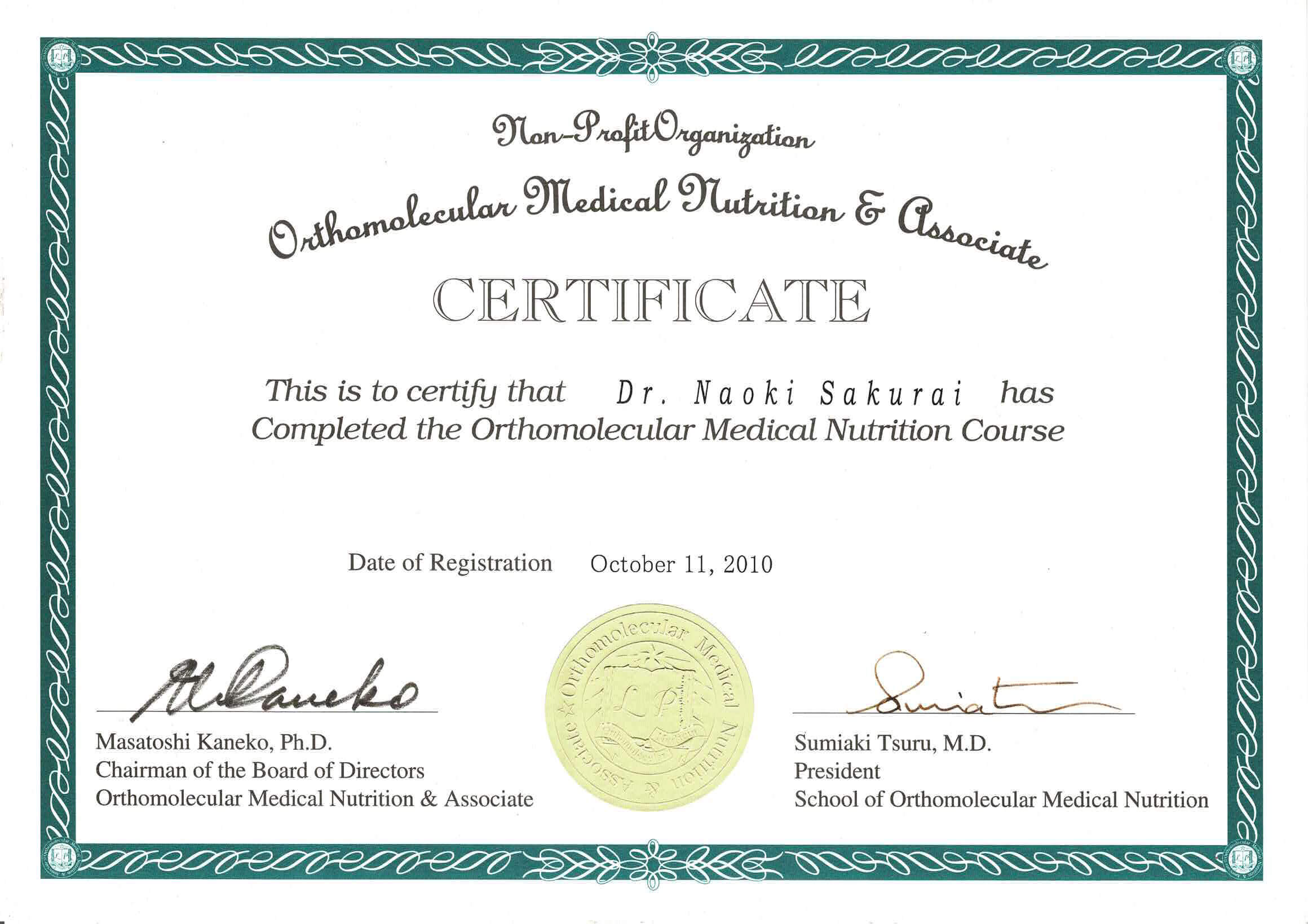
Orthomolecular Medical Nutrition Certificate
| 2002 | Graduated from the Department of Medicine, Faculty of Medicine, University of Tokyo |
|---|---|
| 2002 | Joined Department of Dermatology, University of Tokyo Hospital |
| 2002 | Department of Dermatology, Social Insurance Central General Hospital |
| 2003 | Kosei Hospital Dermatology Department |
| 2005 | Assistant, Department of Dermatology, University of Tokyo Hospital In charge of atopic dermatitis and psoriasis outpatient clinics, chief of laser outpatient clinics |
| 2007 | Department of Dermatology, National Hospital Organization Sagamihara Hospital |
| 2008 | Medical Plus Clinic |
| 2009 | Shonan Cosmetic Surgery |
| 2011 | Charme Clinique Director |
| 2024 | Obtained International Chinese Medicine Doctor License certified by the Federation of Pharmaceutical Societies of the World |
qualification
・Japan Medical Specialist Organization Dermatologist
・Japan Laser Medical Association certified laser instructor/laser specialist
・Japanese Society of Aesthetic Plastic Surgery (JSAS) certified cosmetic surgery specialist
・Japanese Society of Anti-Aging Medicine Specialist
・Doctor certified by the Japan Society for Sexually Transmitted Diseases
・Doctor certified by the Japan Placenta Medical Society
・ICD System Council ICD (Infection Control Doctor)
・Ministry of Health, Labor and Welfare certified clinical training instructor
・High-concentration vitamin C drip therapy certified doctor
・Chelation Therapy Certified Practitioner
・Certified Ozone Therapy Doctor
・Certified physician by the Clinical Molecular Nutritional Medicine Research Association
・Japan Clinical Nutrition Association Supplement Advisor
Affiliated academic society
- Japanese Dermatological Association
- Japan Laser Medical Society
- Japanese Society of Aesthetic Surgery (JSAS)
- Japan Society of Aesthetic Plastic Surgery(JSAPS)
- Japanese Society of Cosmetic Dermatology
- Japanese Society of Anti-Aging Medicine
- Japanese Society for Regenerative Medicine
- Japanese Psoriasis Society
- Japanese Society of Dermatological Surgery
- Japanese Society of Dermatopathology and Histology
- Japanese Society of Pediatric Dermatology
- Japanese Society of Skin Immunology and Allergy
- Japanese Society for Sexually Transmitted Diseases
- Japanese Society of Traditional Chinese Medicine
- Japan Placenta Medical Society
- Japanese Oxidation Therapy Medical Society
- Japanese Medical Hair Removal Society
- Medical Permanent Makeup Society
Writing
- Habits of people who look beautiful both without makeup and after makeup - How to use "cosmetics" that can change the effect by 90%(Seishun Publishing)
Co-authored with Sayaka Konishi - Responsible for part of Dermatopathology in One Book (Bunkodo)
- Responsible for the “melasma” and “senile pigmentation” items for medicina (October 2020 issue)
Supervision
- Supervised the “Skin Problems and Cosmetics” section of the Japan Cosmetic Certification Association’s “Cosmetic Textbook”
- Supervision of “Beautiful Skin Encyclopedia with Accurate Knowledge (Takahashi Shoten)”
- The director's seminar video on "The secret to beauty! Super expert advice (Kindle version)"
- Supervised “Basic Knowledge of Botox Treatment” at “Skin Care University”
クリニックのご案内
-
 所在地
所在地
- 千葉県松戸市秋山68-5
-
 駐車場
駐車場
- 105台の敷地内大型駐車場
-
 電話でのお問合せ
電話でのお問合せ
- 047-710-7788
-
 受付時間
受付時間
- 午前:08:50~11:45
午後:14:50~17:45
※休診日/日曜日(日以外の祝日診療)
※水曜日は院長不在








